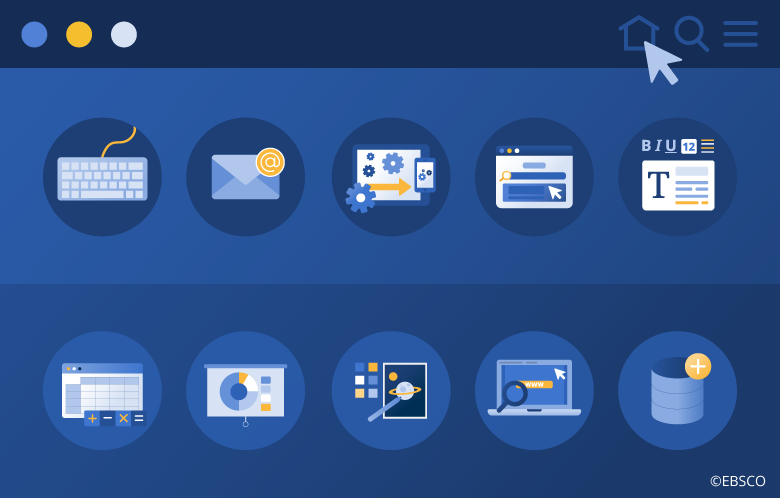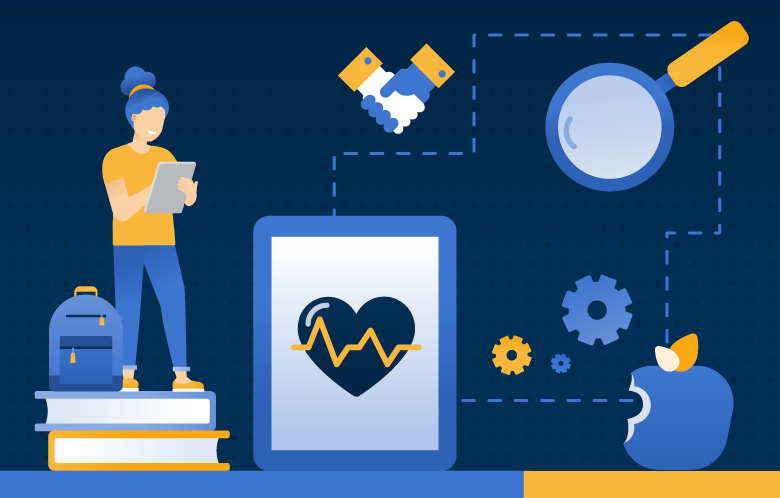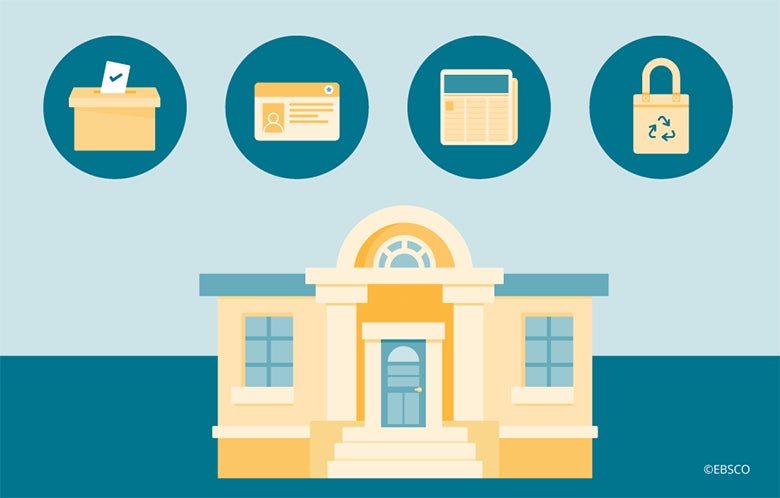In today's interconnected world, computer literacy — a subset of digital literacy — has evolved from a niche skill to an essential one. From education and employment to communication and problem-solving, computers permeate every aspect of our lives. Computer literacy fosters personal and professional growth, bridges socioeconomic gaps, and nurtures innovation and creativity.
Through well-rounded collections and programming, libraries can help members of their communities develop (and improve) these 10 important computer literacy skills:
-
Keyboarding
Efficient keyboarding skills allow individuals to type faster and more accurately, making easy work of tasks such as composing an email, writing a report, data entry and coding. Good typing skills not only improve efficiency and save time, but they also enable clear communication, support academic study, enhance professionalism and expand career opportunities. Libraries looking for passive programming options should consider promoting the new Keyboarding Course available through EBSCO LearningExpress.
-
Writing emails
Email has revolutionized the way people communicate. It’s how individuals share family updates, request information and engage in the worlds of education and business. However, choice of words, sentence length, punctuation and capitalization can easily be misinterpreted without visual and auditory cues. The Email Etiquette course available in LearningExpress Library Complete covers the basics of writing and sending messages, organizing email inboxes, following company policies, and creating professional emails that get results. This skill could be just one of many emphasized in a library program designed to help individuals build their job skills.
-
Understanding an operating system
It’s important for users to understand their computer operating systems so that they can efficiently navigate the system, install software, troubleshoot issues, maintain a secure environment and adapt to new technologies. Direct library users to LearningExpress for basic, intermediate and advanced tutorials on navigating Windows. They’ll also find information on using printers and other hardware, organizing files and folders, keeping computer data safe and more.
-
Navigating the internet
The internet has become an integral part of our daily lives, connecting us to a vast array of resources, services and opportunities. It supports communication (email, messaging, video calls), information retrieval (research, news, articles), entertainment (streaming, gaming), social networking, online shopping, banking, education (e-learning, online courses), collaboration, job searching and much more. To help patrons who might be a bit late to the party, LearningExpress includes introductory courses on web surfing, social media, online shopping, internet safety and more.
-
Creating word processing documents
Word processing skills enable individuals to present information and ideas in a clear and professional manner, whether they are writing a college essay, applying for a job, or writing a business plan. By mastering formatting options, such as font styles, sizes and alignment, one can enhance the visual appeal of their documents, making them more engaging and readable. Though many people use Google Docs, the most popular word processing software is Microsoft Word. Encourage patrons to sharpen their Word skills using the interactive tutorials and hands-on practice available in LearningExpress Computer Skills.
-
Building and managing spreadsheets
Spreadsheets are commonly used for data analysis, financial management, organization, tracking and collaboration. Spreadsheets also aid in data visualization, allowing users to present complex information in a concise and visually appealing format. Encourage patrons to become proficient using the most popular spreadsheet software program, Microsoft Excel, using the courses in LearningExpress Computer Skills.
-
Preparing presentation slides
Microsoft PowerPoint is widely used for creating visually engaging presentations in various settings, including business, education and public speaking. It allows users to combine text, images, charts, and multimedia elements to deliver information effectively and captivate audiences. LearningExpress Computer Skills offers courses to familiarize users with Microsoft PowerPoint and all its nifty features, such as slide transitions, animations and speaker notes.
-
Creating and editing images
Whether users are simply cropping an image or designing one from scratch, knowing how to create and edit images is a valuable skill. Libraries whose LearningExpress subscription includes LearningExpress Computer Skills will find basic and advanced courses for Adobe Photoshop and Adobe Illustrator.
-
Researching online
Information seekers today are most likely to look for answers to their questions online. Whether they are completing a research project for school or work or simply looking to satisfy a curiosity, knowing how to locate reputable information online is a necessary skill. Direct patrons to LearningExpress Library Complete video courses such as “Using Search Engines to Find Websites and Answers” and “Introduction to Research Skills: Information Literacy.”
-
Using databases
Library databases enable researchers to locate trustworthy information from a variety of sources, including books, magazine articles and videos. By knowing how to search databases effectively, users can save users a lot of time. Refer to EBSCO Connect for lesson plans on integrating EBSCO databases into school curriculum as well as research and writing tips for students. To support learning on how to create and manage databases for business, LearningExpress Computer Skills includes courses in Microsoft Access.
Computer literacy is a prerequisite for thriving in a rapidly evolving landscape. Libraries can play an important role in increasing computer literacy among students and patrons by empowering them to navigate the digital world with confidence.



